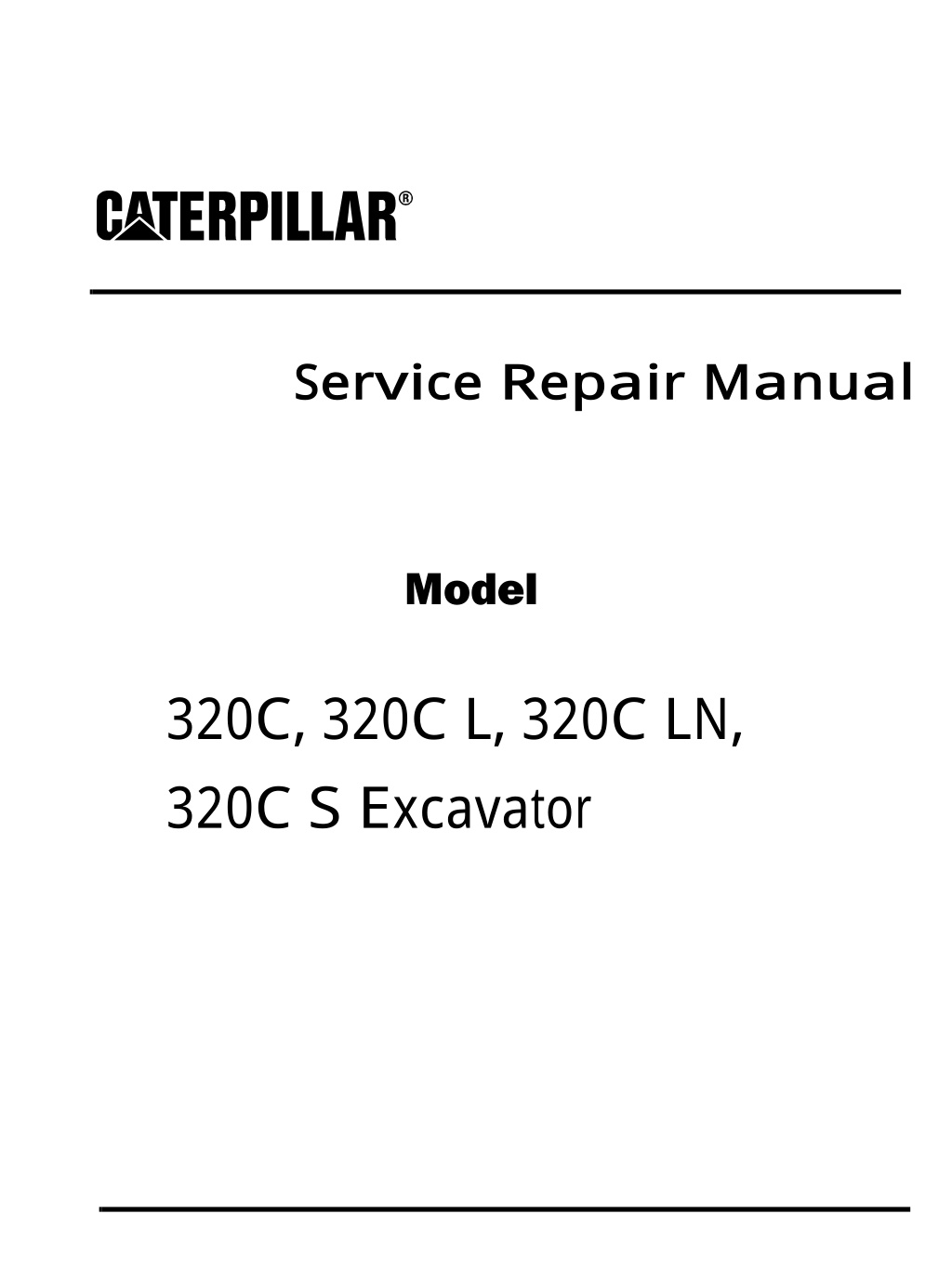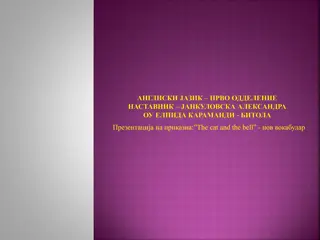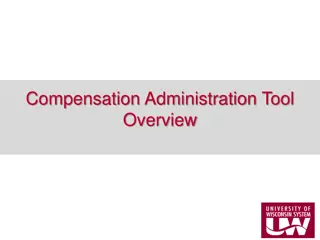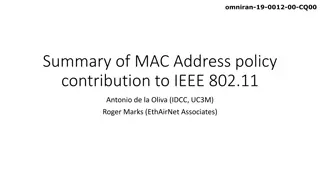
Caterpillar Cat 320C, 320C L, 320C LN, 320C S Excavator (Prefix BEA) Service Repair Manual Instant Download
Please open the website below to get the complete manualnn//
Download Presentation

Please find below an Image/Link to download the presentation.
The content on the website is provided AS IS for your information and personal use only. It may not be sold, licensed, or shared on other websites without obtaining consent from the author. Download presentation by click this link. If you encounter any issues during the download, it is possible that the publisher has removed the file from their server.
E N D
Presentation Transcript
Service Repair Manual Model 320C, 320C L, 320C LN, 320C S Excavator
w 1/7(W) Shutdown SIS Previous Screen Product: EXCAVATOR Model: 320C EXCAVATOR BEA Configuration: 320C, 320C L, 320C LN, 320C S Excavators BEA00001-UP (MACHINE) POWERED BY 3066 Engine Disassembly and Assembly 320C Excavator Machine Systems Media Number -RENR3826-16 Publication Date -01/11/2014 Date Updated -30/03/2016 i02544012 Bucket Cylinder - Remove and Install SMCS - 5457-010 Removal Procedure Cylinders equipped with lock valves can remain pressurized for very long periods of time, even with the hoses removed. Failure to relieve pressure before removing a lock valve or disassembling a cylinder can result in personal injury or death. Ensure all pressure is relieved before removing a lock valve or disassembling a cylinder. Note: Cleanliness is an important factor. Before the disassembly procedure, the exterior of the component should be thoroughly cleaned. This will help to prevent dirt from entering the internal mechanism. NOTICE Care must be taken to ensure that fluids are contained during performance of inspection, maintenance, testing, adjusting and repair of the product. Be prepared to collect the fluid with suitable containers before opening any compartment or disassembling any component containing fluids. Refer to Special Publication, NENG2500, "Caterpillar Dealer Service Tool Catalog" for tools and supplies suitable to collect and contain fluids on Caterpillar products. Dispose of all fluids according to local regulations and mandates. https://127.0.0.1/sisweb/sisweb/techdoc/techdoc_print_page.jsp?returnurl=/sisweb/sis... 2019/10/15
w 2/7(W) At operating temperature, the hydraulic oil is hot and under pressure. Hot oils can cause burns. To prevent possible personal injury, release the pressure in the work tool hydraulic circuit (boom, stick, bucket, and swing), travel circuits, and the hydraulic oil tank at the filler cap before any hydraulic lines or components are disconnected or removed. Remove the filler cap only when the engine is stopped and the filler cap is cool enough to touch. Note: Put identification marks on all lines, on all hoses, on all wires, and on all tubes for installation purposes. Plug all lines, hoses, and tubes. This helps to prevent fluid loss and this helps to keep contaminants from entering the system. 1. Release the hydraulic system pressure. Refer to Disassembly and Assembly, "System Pressure - Release". Illustration 1 g00555749 2. Fasten a suitable lifting device to the rod end of the bucket cylinder, as shown. Put suitable blocking (3) under the link assemblies as a support. 3. Remove the nuts and retaining bolt (1) . Remove pin (2) . 4. Note the location and the quantity of the shims between the power link and the idler link. Remove the shims. https://127.0.0.1/sisweb/sisweb/techdoc/techdoc_print_page.jsp?returnurl=/sisweb/sis... 2019/10/15
https://www.ebooklibonline.com Hello dear friend! Thank you very much for reading. Enter the link into your browser. The full manual is available for immediate download. https://www.ebooklibonline.com
w 3/7(W) Illustration 2 g00477372 5. Raise bucket cylinder (4) until bucket cylinder (4) is level. Fasten a suitable lifting device to the head end of bucket cylinder (4) , as shown. Disconnect hose assemblies (5) . Illustration 3 g00477379 6. Remove retaining bolt (6) , pin assembly (7) , and the spacer. Remove the bucket cylinder. The weight of the bucket cylinder is approximately 150 kg (330 lb). 7. Note the location and the quantity of shims on both sides of the bucket cylinder at the stick pin. Remove the shims. Disassembly and Assembly Information Table 1 Required Tools Tool Part Number Part Description Qty 127-4904 Hydraulic Cylinder Repair Stand Gp 1 1P-0520 Driver Gp 1 A 9U-7868 Spanner Wrench 1 127-8064 Adapter Plate Gp 1 195-4609 Seal Pick 1 B 4C-4032 Bearing Mount Compound 1 https://127.0.0.1/sisweb/sisweb/techdoc/techdoc_print_page.jsp?returnurl=/sisweb/sis... 2019/10/15
w 4/7(W) C 5P-0960 Grease Cartridge 1 Cylinders equipped with lock valves can remain pressurized for very long periods of time, even with the hoses removed. Failure to relieve pressure before removing a lock valve or disassembling a cylinder can result in personal injury or death. Ensure all pressure is relieved before removing a lock valve or disassembling a cylinder. Illustration 4 g01174095 Note: Apply a light film of hydraulic oil to all components before assembly. 1. Apply Tooling (B) to seal (1) prior to assembly. https://127.0.0.1/sisweb/sisweb/techdoc/techdoc_print_page.jsp?returnurl=/sisweb/sis... 2019/10/15
w 5/7(W) 2. Apply clean hydraulic oil on the lip of seal (1) , seal (2) , and seal (3) . 3. Apply Tooling (C) to the threads of head (5) . 4. Lubricate the threads of rod assembly (7) with Tooling (C) . 5. Tighten locknut (8) to a torque of 7600 380 N m (5605 280 lb ft). 6. Install ball (10) and setscrew (9) in locknut (8) . Tighten setscrew (9) to a torque of 57 10 N m (42 7 lb ft). 7. Lubricate the outside of piston (6) with Tooling (C) . 8. Tighten bolts (4) to a torque of 267 40 N m (197 30 lb ft). Installation Procedure Table 2 Required Tools Tool Part Number Part Description Qty D 5P-0960 Grease Cartridge 1 Note: Cleanliness is an important factor. Before assembly, all parts should be thoroughly cleaned in cleaning fluid. Allow the parts to air dry. Wiping cloths or rags should not be used to dry parts. Lint may be deposited on the parts which may cause later trouble. Inspect all parts. If any parts are worn or damaged, use new parts for replacement. Illustration 5 g00477379 1. Fasten a suitable lifting device to bucket cylinder (4) . The weight of bucket cylinder (4) is approximately 150 kg (330 lb). Place bucket cylinder (4) in position in the stick. Lower the head end of bucket cylinder (4) into the brackets on top of the stick. Make sure that the pin bores in the stick are in alignment with the pin bores in the bucket cylinder. Make sure that the grease fittings in the head end and in the rod end of bucket cylinder (4) are facing away from the stick. 2. Install the shims on both sides of the bucket cylinder at the bore for pin assembly (7) . 3. Install pin assembly (7) . 4. Install retaining bolt (6) . Tighten retaining bolt (6) to a torque of 460 60 N m (340 44 lb ft). https://127.0.0.1/sisweb/sisweb/techdoc/techdoc_print_page.jsp?returnurl=/sisweb/sis... 2019/10/15
w 6/7(W) Illustration 6 g00477372 5. Install O-ring seals in the ends of hose assemblies (5) . Connect hose assemblies (5) to bucket cylinder (4) . Illustration 7 g00555749 6. Lower the bucket cylinder between the link assemblies. Install the shims on both sides of the power link between the power link and the idler links. 7. Apply a thin coat of Tooling (D) on pin (2) . Make sure that the bore in the bucket cylinder rod is in alignment with the bores in the link assemblies. Install pin (2) . Install retaining bolt (1) and the two nuts. https://127.0.0.1/sisweb/sisweb/techdoc/techdoc_print_page.jsp?returnurl=/sisweb/sis... 2019/10/15
w 7/7(W) Illustration 8 g00478086 8. Tighten the nuts on retaining bolt (1) . Tighten the outside nut until the nut is 0.5 mm (0.02 inch) beyond the end of the retaining bolt, as shown. Tighten the inside nut against the outside nut to a torque of 460 60 N m (340 44 lb ft). 9. Fill the hydraulic oil tank with oil to the correct level. Refer to Operation and Maintenance Manual, "Refill Capacities". 10. Start the engine, and run the engine at a low idle speed. Raise the bucket from the ground. Extend and retract the bucket cylinder approximately ten times in order to remove the air from the hydraulic system. 11. Recheck the oil level in the hydraulic oil tank. If necessary, refill the hydraulic oil tank to the correct level. Copyright 1993 - 2019 Caterpillar Inc. Tue Oct 15 09:41:11 UTC+0800 2019 All Rights Reserved. Private Network For SIS Licensees. https://127.0.0.1/sisweb/sisweb/techdoc/techdoc_print_page.jsp?returnurl=/sisweb/sis... 2019/10/15
w 1/4(W) Shutdown SIS Previous Screen Product: EXCAVATOR Model: 320C EXCAVATOR BEA Configuration: 320C, 320C L, 320C LN, 320C S Excavators BEA00001-UP (MACHINE) POWERED BY 3066 Engine Disassembly and Assembly 320C Excavator Machine Systems Media Number -RENR3826-16 Publication Date -01/11/2014 Date Updated -30/03/2016 i01862522 Drift Reduction Valve (Stick) - Remove SMCS - 5143-011-JJ Removal Procedure Table 1 Required Tools Tool Part Number Part Description Qty A FT-2674 Vacuum Cap 1 Start By: a. Release the hydraulic system pressure. Refer to Disassembly and Assembly, "Hydraulic System Pressure - Release" . NOTICE Keep all parts clean from contaminants. Contamination of the hydraulic system with foreign material will reduce the service life of the hydraulic system components. To prevent contaminants from entering the hydraulic system, always plug or cap the lines, fittings, or hoses as they are disconnected. Cover any disassembled components and clean them properly before assembly. Clean the hydraulic system properly after any major component exchange or especially after a component failure, to remove any contamination. https://127.0.0.1/sisweb/sisweb/techdoc/techdoc_print_page.jsp?returnurl=/sisweb/sis... 2019/10/15
w 2/4(W) NOTICE Care must be taken to ensure that fluids are contained during performance of inspection, maintenance, testing, adjusting, and repair of the product. Be prepared to collect the fluid with suitable containers before opening any compartment or disassembling any component containing fluids. Refer to Special Publication, NENG2500, "Dealer Service Tool Catalog" for tools and supplies suitable to collect and contain fluids on Cat products. Dispose of all fluids according to local regulations and mandates. Note: A hydraulic oil sample should be obtained before any maintenance is performed in order to establish the system contaminant level. Refer to Fluid Analysis Laboratory Guide, SEBF3116, "Obtaining an Oil Sample for S O S Analysis". Refer to Operation and Maintenance Manual, "Sampling Interval and Location of Sampling Valve" for the correct location. Illustration 1 g00690963 1. Remove the cap from the hydraulic tank. Attach Tooling (A) to the hydraulic tank. Note: Hook up the air to Tooling (A) in order to create a vacuum in the hydraulic system. This will minimize the leakage from the hose assemblies. https://127.0.0.1/sisweb/sisweb/techdoc/techdoc_print_page.jsp?returnurl=/sisweb/sis... 2019/10/15
w 3/4(W) Illustration 2 g00694424 2. Remove bolts (1) and the washers in order to remove cover (2). Illustration 3 g00706043 3. Remove socket head bolts (3) and the split flanges in order to disconnect hose assembly (4) from the stick drift reduction valve. 4. Remove bolts (6), the washers, and the split flanges in order to disconnect hose assembly (7) from the stick drift reduction valve. 5. Disconnect hose assemblies (5). https://127.0.0.1/sisweb/sisweb/techdoc/techdoc_print_page.jsp?returnurl=/sisweb/sis... 2019/10/15
w 4/4(W) Illustration 4 g00706051 6. Remove bolts (8). 7. Remove stick drift reduction valve (9). Copyright 1993 - 2019 Caterpillar Inc. Tue Oct 15 09:42:06 UTC+0800 2019 All Rights Reserved. Private Network For SIS Licensees. https://127.0.0.1/sisweb/sisweb/techdoc/techdoc_print_page.jsp?returnurl=/sisweb/sis... 2019/10/15
w 1/8(W) Shutdown SIS Previous Screen Product: EXCAVATOR Model: 320C EXCAVATOR BEA Configuration: 320C, 320C L, 320C LN, 320C S Excavators BEA00001-UP (MACHINE) POWERED BY 3066 Engine Disassembly and Assembly 320C Excavator Machine Systems Media Number -RENR3826-16 Publication Date -01/11/2014 Date Updated -30/03/2016 i02696617 Drift Reduction Valve (Stick) - Disassemble SMCS - 5143-015-JJ Disassembly Procedure Table 1 Required Tools Tool Part Number Part Description Qty A 6V-7981 Bolt (M10-1.5 by 70mm) 2 Start By: a. Remove the stick drift reduction valve. Refer to Disassembly and Assembly, "Drift Reduction Valve (Stick) - Remove". NOTICE Keep all parts clean from contaminants. Contamination of the hydraulic system with foreign material will reduce the service life of the hydraulic system components. To prevent contaminants from entering the hydraulic system, always plug or cap the lines, fittings, or hoses as they are disconnected. Cover any disassembled components and clean them properly before assembly. Clean the hydraulic system properly after any major component exchange or especially after a component failure, to remove any contamination. https://127.0.0.1/sisweb/sisweb/techdoc/techdoc_print_page.jsp?returnurl=/sisweb/sis... 2019/10/15
w 2/8(W) Note: Cleanliness is an important factor. Before the disassembly procedure, the exterior of the component should be thoroughly cleaned. This will prevent dirt from entering the internal mechanism. Illustration 1 g00703710 1. Remove bolts (1) and the washers. Remove half flanges (2) and the cover. Remove fittings (3) from valve body (4). Illustration 2 g00703711 2. Remove O-ring seal (5) from the fittings. https://127.0.0.1/sisweb/sisweb/techdoc/techdoc_print_page.jsp?returnurl=/sisweb/sis... 2019/10/15
w 3/8(W) Illustration 3 g00703712 Personal injury can result from parts and/or covers under spring pressure. Spring force will be released when covers are removed. Be prepared to hold spring loaded covers as the bolts are loosened. Illustration 4 g00703713 3. Remove two bolts (6). Install Tooling (A). Remove the remaining two bolts. Remove Tooling (A). Remove cover (7) from the valve body. Illustration 5 g00703714 4. Remove O-ring seal (8) and ring (9) from the cover. https://127.0.0.1/sisweb/sisweb/techdoc/techdoc_print_page.jsp?returnurl=/sisweb/sis... 2019/10/15
w 4/8(W) Illustration 6 g00703715 Personal injury can result from parts and/or covers under spring pressure. Spring force will be released when covers are removed. Be prepared to hold spring loaded covers as the bolts are loosened. 5. Remove spring (11) and spool valve (10) from the valve body. Illustration 7 g00703716 6. Remove plug (12) and the O-ring seal from the valve body. Personal injury can result from parts and/or covers under spring pressure. https://127.0.0.1/sisweb/sisweb/techdoc/techdoc_print_page.jsp?returnurl=/sisweb/sis... 2019/10/15
w 5/8(W) Spring force will be released when covers are removed. Be prepared to hold spring loaded covers as the bolts are loosened. Illustration 8 g00703718 7. Remove O-ring seal (13) from the plug. Illustration 9 g00703719 8. Remove plug (14) and the O-ring seal from the valve body. https://127.0.0.1/sisweb/sisweb/techdoc/techdoc_print_page.jsp?returnurl=/sisweb/sis... 2019/10/15
w 6/8(W) Illustration 10 g00703720 9. Remove O-ring seal (15) from the plug. Illustration 11 g00703721 10. Remove spring (18), guide (17), and spool (16) from the valve body. Illustration 12 g00703722 11. Remove plug (19) and the O-ring seal from the valve body. Illustration 13 g00703723 https://127.0.0.1/sisweb/sisweb/techdoc/techdoc_print_page.jsp?returnurl=/sisweb/sis... 2019/10/15
w 7/8(W) 12. Remove O-ring seal (20) from the plug. Illustration 14 g00703724 13. Remove relief valve (21) from the valve body. Illustration 15 g00703725 14. Remove O-ring seals (23), (24), (25), (26), and (28). Remove rings (22) and (27). https://127.0.0.1/sisweb/sisweb/techdoc/techdoc_print_page.jsp?returnurl=/sisweb/sis... 2019/10/15
w 8/8(W) Illustration 16 g00703726 15. Remove pipe plug (29) from the valve body. Illustration 17 g00703727 16. Remove O-ring seal (30) and O-ring seal (31) from the valve body. Remove plug (32) and the O-ring seal from the valve body. Illustration 18 g00703728 17. Remove O-ring seal (33) from the plug. Copyright 1993 - 2019 Caterpillar Inc. Tue Oct 15 09:43:02 UTC+0800 2019 All Rights Reserved. Private Network For SIS Licensees. https://127.0.0.1/sisweb/sisweb/techdoc/techdoc_print_page.jsp?returnurl=/sisweb/sis... 2019/10/15
Suggest: If the above button click is invalid. Please download this document first, and then click the above link to download the complete manual. Thank you so much for reading
w 1/8(W) Shutdown SIS Previous Screen Product: EXCAVATOR Model: 320C EXCAVATOR BEA Configuration: 320C, 320C L, 320C LN, 320C S Excavators BEA00001-UP (MACHINE) POWERED BY 3066 Engine Disassembly and Assembly 320C Excavator Machine Systems Media Number -RENR3826-16 Publication Date -01/11/2014 Date Updated -30/03/2016 i02696641 Drift Reduction Valve (Stick) - Assemble SMCS - 5143-016-JJ Assembly Procedure Table 1 Required Tools Tool Part Number Part Description Qty A 6V-7981 Bolt M10-1.5 by 70mm 2 B 1U-6396 O-Ring Assembly Compound 1 Note: Cleanliness is an important factor. Before assembly, all parts should be thoroughly cleaned in cleaning fluid. Allow the parts to air dry. Wiping cloths or rags should not be used to dry parts. Lint may be deposited on the parts which may cause later trouble. Inspect all parts. If any parts are worn or damaged, use new parts for replacement. All disassembly and all assembly procedures must be performed on a clean work surface and in a clean hydraulic area. Keep cleaned parts covered and protected at all times. Note: O-rings, gaskets, and seals should always be replaced. A used O-ring seal may not have the same sealing properties as a new O-ring seal. Use Tooling (A) during the assembly procedure. Note: Apply a light film of hydraulic oil to all components before assembly. https://127.0.0.1/sisweb/sisweb/techdoc/techdoc_print_page.jsp?returnurl=/sisweb/sis... 2019/10/15
https://www.ebooklibonline.com Hello dear friend! Thank you very much for reading. Enter the link into your browser. The full manual is available for immediate download. https://www.ebooklibonline.com
























